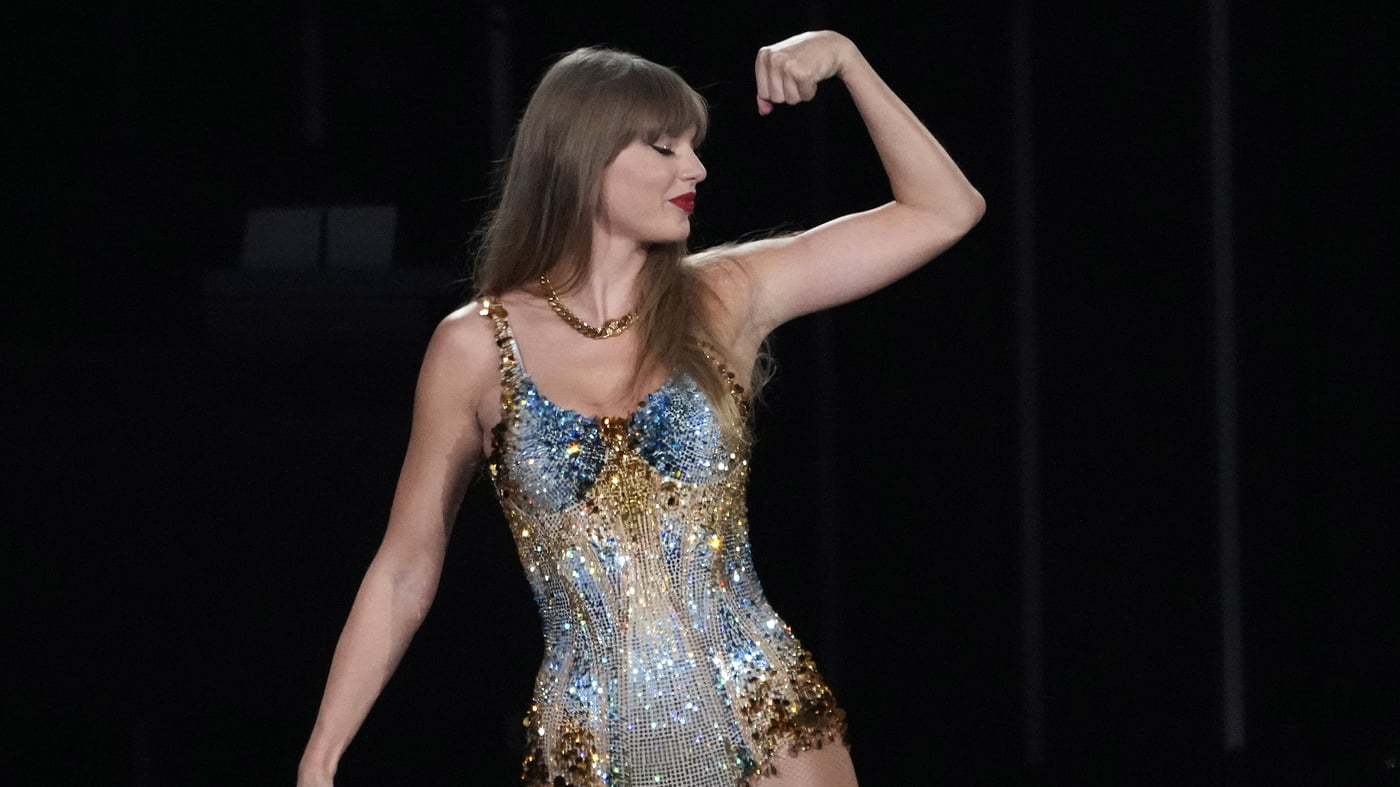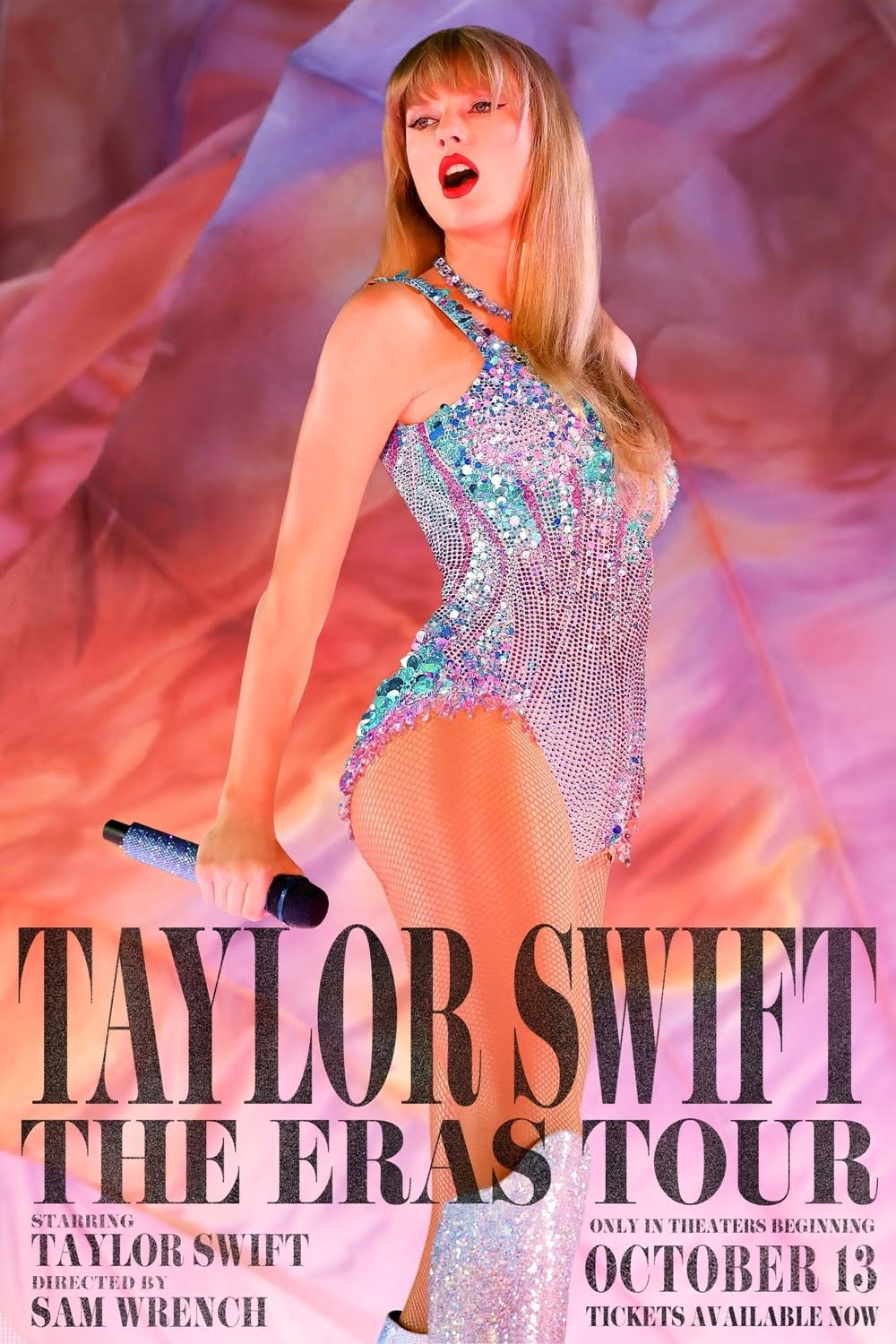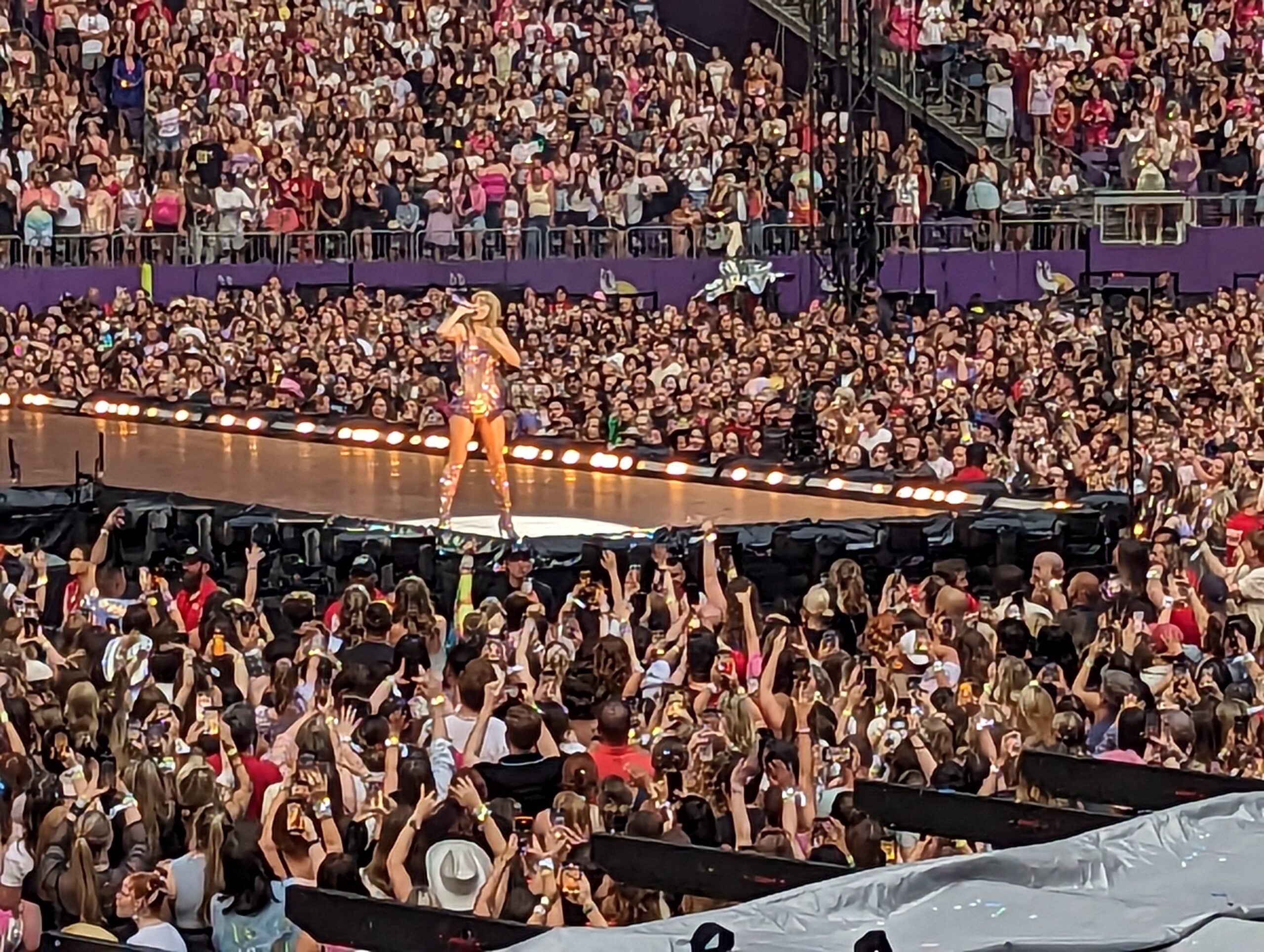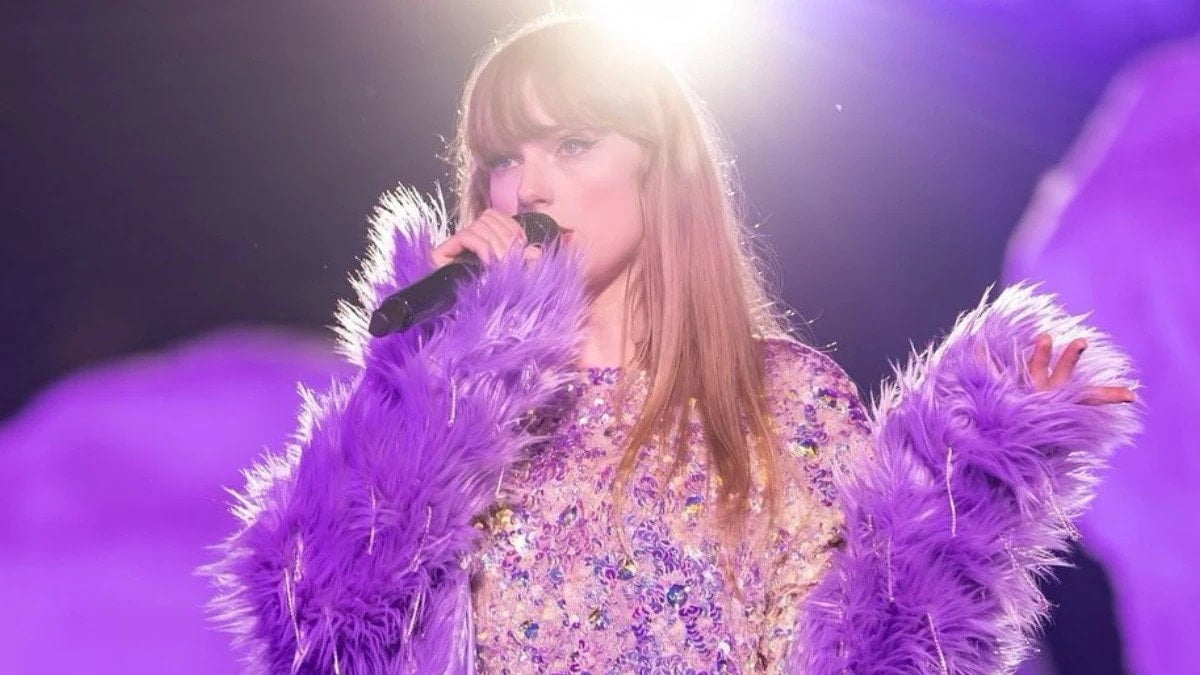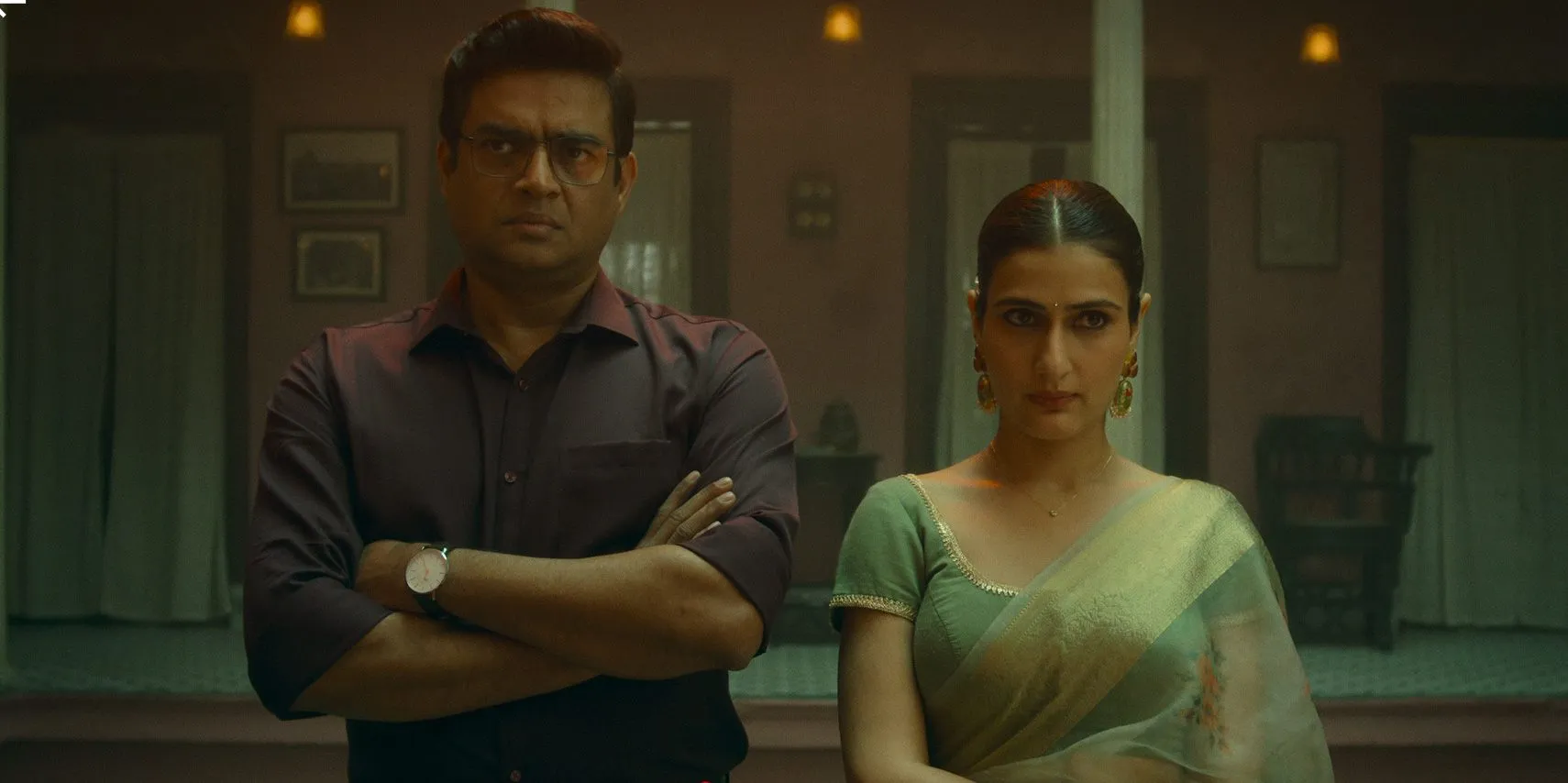Taylor Swift recently released her record-breaking The Eras Tour Movie, a concert film that features the singer’s massively successful tour. The crowds of audience went wild in theatres, screaming “Long Live” and the ‘Swifties’ (as Taylor Swift’s fanbase is popularly known) made magic in the theatre halls in India. Wearing shimmery clothes, exchanging friendship bracelets, screaming and shouting lyrics to songs written almost a decade ago, dancing and cheering, Swifties are creating headlines in the pop culture space.
Such a celebration of Taylor Swift’s musical journey spanning over seventeen years across different eras is a remarkable feat turning theatres into concert spaces across different cities worldwide
Such a celebration of Taylor Swift’s musical journey spanning over seventeen years across different eras is a remarkable feat turning theatres into concert spaces across different cities worldwide. However, in India, this is not the first time that cinema viewers have demonstrated unhinged enthusiasm in the movie halls.
Swifties and the gendered space of the cinema hall
Crowds inside the theatre are often spotted lauding and whistling to RajniKanth’s dramatic entry, Salman Khan’s action sequences and Shahrukh’s smooth moves. Recently, cinema viewers were spotted dancing to Naatu Naatu and Jhoome jo pathaan in the theatres. The fanboys of Salman Khan this week have crossed a threshold by bursting crackers inside the movie hall in Malegaon to celebrate the screening of Tiger 3. This kind of celebration captures the toxic masculinity that has been associated with Khan and his fans for years now. Though the actor has labelled the incident as ‘dangerous‘, it might set a pattern of unnecessary and uncalled for behaviour in a public space such as the movie hall. Contrast this to the mass euphoria that has often been evoked by the American singer, Taylor Swift. The excitement around the Eras tour film is pleasant and heart-warming. The juxtaposition of viral videos of Swift’s and Salman Khan’s movie screenings point to a more gendered problem- the hegemonised masculine cinema spaces.
Spaces are gendered. The movie hall is a gendered space as much as any other public space. Access to public spaces have been historically denied to women. Just like any other public space, theatre halls are hegemonised by masculine forces that allow the expression of thrill, anger, disgust and joy by men but inevitably curtail women and queer persons from enjoying the luxury of public expression of emotions. Men are allowed an unfettered display of emotions that are often loud and aggressive, while womxn are often asked to “tone it down”. Laughing too loudly in cinema halls may come off as “manly” or dancing one’s hearts out to one’s favourite singer’s songs can be considered “cringe” and “laughable” even insane and the audience might be labelled as desperately trying to be “westerners”.
The trolling convolutes the material phenomenon such as globalisation and westernisation and the audio-visual-affective phenomenon that is experienced through Swift’s music and the big screen. It is true that Swift’s songs have travelled across the world with the help of globalisation but her music has connected listeners across the globe by evoking profound and genuine emotions of love, loss and hope that know no boundaries. The implicit stereotyping and prejudice in these trollings is indicative of who is allowed to listen and enjoy the music and at what place.
The implicit stereotyping and prejudice in these trollings is indicative of who is allowed to listen and enjoy the music and at what place.
The trolling garbs the gendered prejudice that on one hand approves of men dancing in the theatre halls to their idols who are largely men or to an item song that again acknowledges the male-gaze and on the other, shames and disapproves of those who have been conventionally excluded from the space otherwise. This only furthers the question as to why spaces remain gendered.
From ridicule to reclamation
After the videos of her fans dancing to her songs went viral, Swift was jokingly referred to as “Ladkiyon ki Sallu Bhai” (A gross misnomer) and “Salman Khan for teenagers and gay dudes”. Some Twitter (now X) users even commented that they had never seen fans dancing even to SRK for three long hours. This mass euphoria is unparalleled and new to the Indian audience. It is an extension of Swift’s power. The singer’s fan base largely consists of women. According to a survey, 51% of fans of Taylor swift are women. Though there is no data for Indian fans, it is glaringly evident that women constitute the majority of her fanbase.
Swift writes from her perspective, her brilliant songwriting skills speak to women who situate themselves in her lyrics. Thus, as a woman writing from the woman’s point of view, her lyrics echo with mostly womxn who experience similar trysts with love, friendships and the society. Men who are swifties are often shamed for liking her music. As mentioned, the trolls’ claims that only “gay dudes” listen to Swift, solidifies gender prejudices of which music or song is “masculine” enough to be heard by men.
The screening of The Eras tour movie witnessed Swifties exchanging friendship bracelets, making hand hearts, hopping around in circles in the movie hall. Expression of positive emotions and gestures generates a sense of belongingness that enables particularly women to access and demonstrate emotions freely, It was a union of raw emotions that the audience felt in the moment and did not hold back from celebrating, thereby “un-gendering” these spaces. This affective synergy between the people and the artist on the screen allows collective experience of a gamut of emotions that are otherwise repressed in other gendered spaces.
It was a union of raw emotions that the audience felt in the moment and did not hold back from celebrating, thereby “un-gendering” these spaces.
Further, many of the cinema-goers felt unjudged and safe during the movie. In an interview with The News Minute, Sneha (named changed), a 26-year-old PR professional from Bengaluru who had gone for the The Eras Tour movie in the city, said that she could not bring herself to dance but did not feel judged either. She said, ‘Whether I chose to sit and listen to Taylor singing or whether I was singing along, I felt safe.’ The transference of synergy between the reel and the real is where cinematic spaces are dynamic and interactive in lending the affective power of cinema visible.
Swifties “un-gendering” public spaces
The fandom has been overjoyed at Swift’s meteoric rise to fame. Swift has offered a source of comfort and warmth through her music to millions of her fans for years now. Her journey as a woman in the music industry was tainted by the tight patriarchal grip of powerful men in the American music industry. Slut-shamed and infamously dubbed as a “serial dater”, Swift has called out misogyny and sexism in the industry.
She is chastised for writing songs only about her exes while other male artists such as Ed Sheeran, John Mayer and Bruno Mars are never questioned about it. Thus, in seventeen years along with her music, both Swift and her fans have grown and taken the road less travelled. The enchanting world that Swift has created has aligned all her fans in one place at the same time in a movie hall has enabled women and queer persons to take the stage unapologetically and cultivate positive emotions.
Case in point, the very concept of making ‘friendship bracelets’ inspired by a line in the song ‘You’re on your own kid’ reinforces strong positive emotions of togetherness, love and harmony. Exchanging friendship bracelets is an extension of creating bonds of sisterhood and solidarity in a performative sense. These collective shared experiences can be deeply political in the sense of creating spaces that further inclusion and non conformity- where men too can listen to and enjoy music written by a woman artist without questions on their masculinity.
Swifties have lent an ‘alternative visual spectacle’ where it is women in majority coming out to publicly display their emotions creating inclusive and warm spaces for others in the movie theatres- celebrating art and the artist in the most creative ways.
Swifties have lent an ‘alternative visual spectacle’ where it is women in majority coming out to publicly display their emotions creating inclusive and warm spaces for others in the movie theatres- celebrating art and the artist in the most creative ways. Reclaiming the gendered spaces that has traditionally allowed men the luxury of free expression and has more than often been exclusionary and hostile to others- The Eras tour movie has much more to offer than it claims to. The juxtaposition of fanbases celebrating their respective idols on screen is a reflection of the highly gendered space that a cinema hall is.
